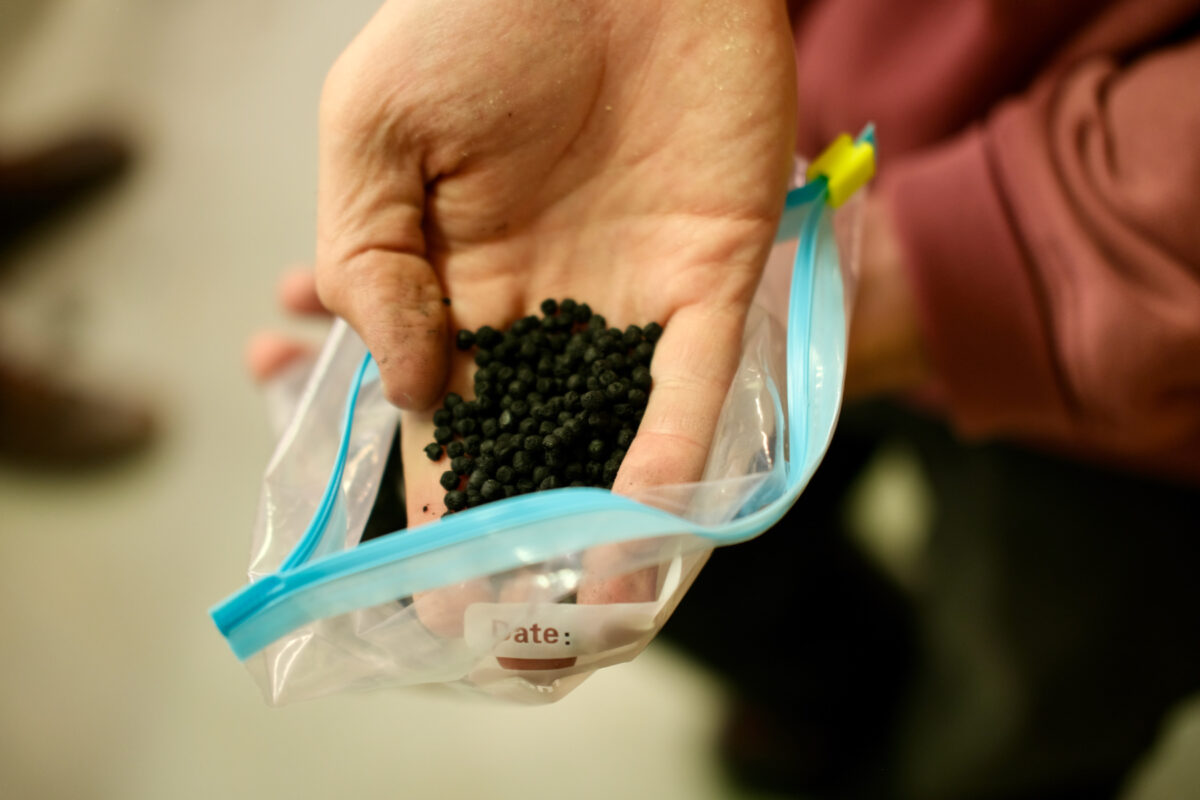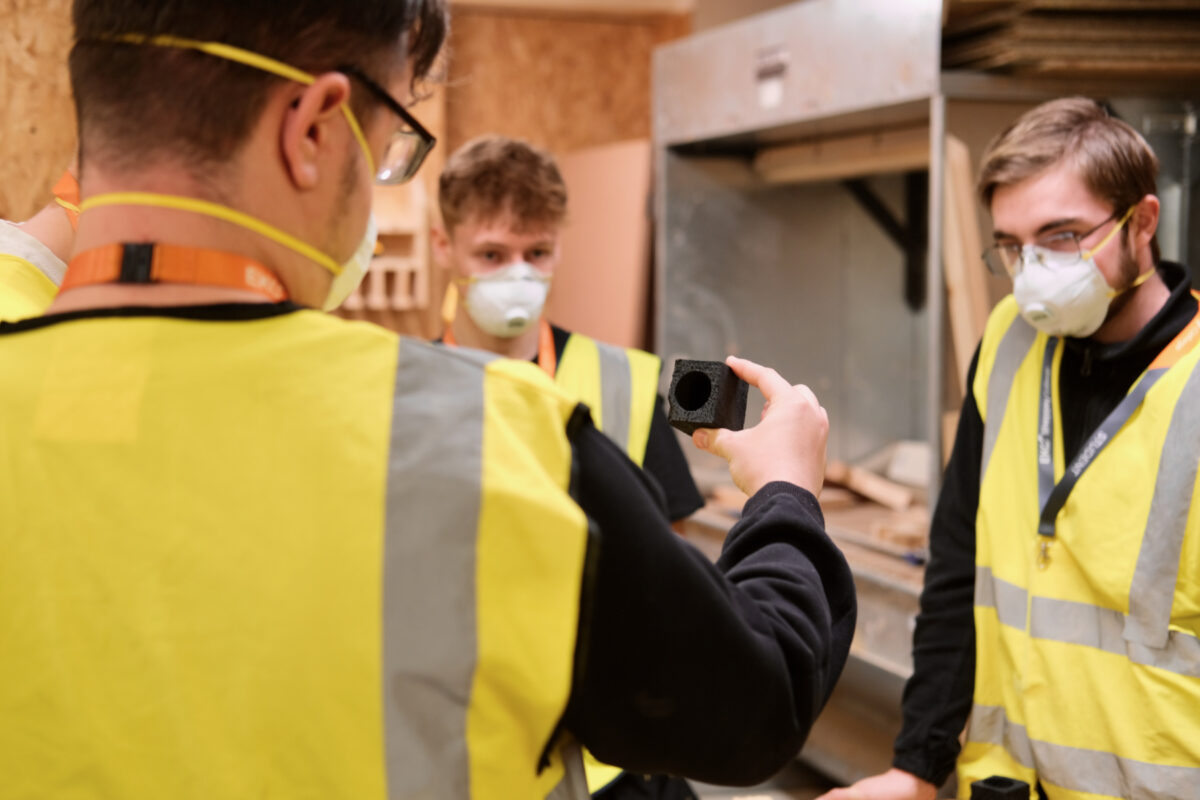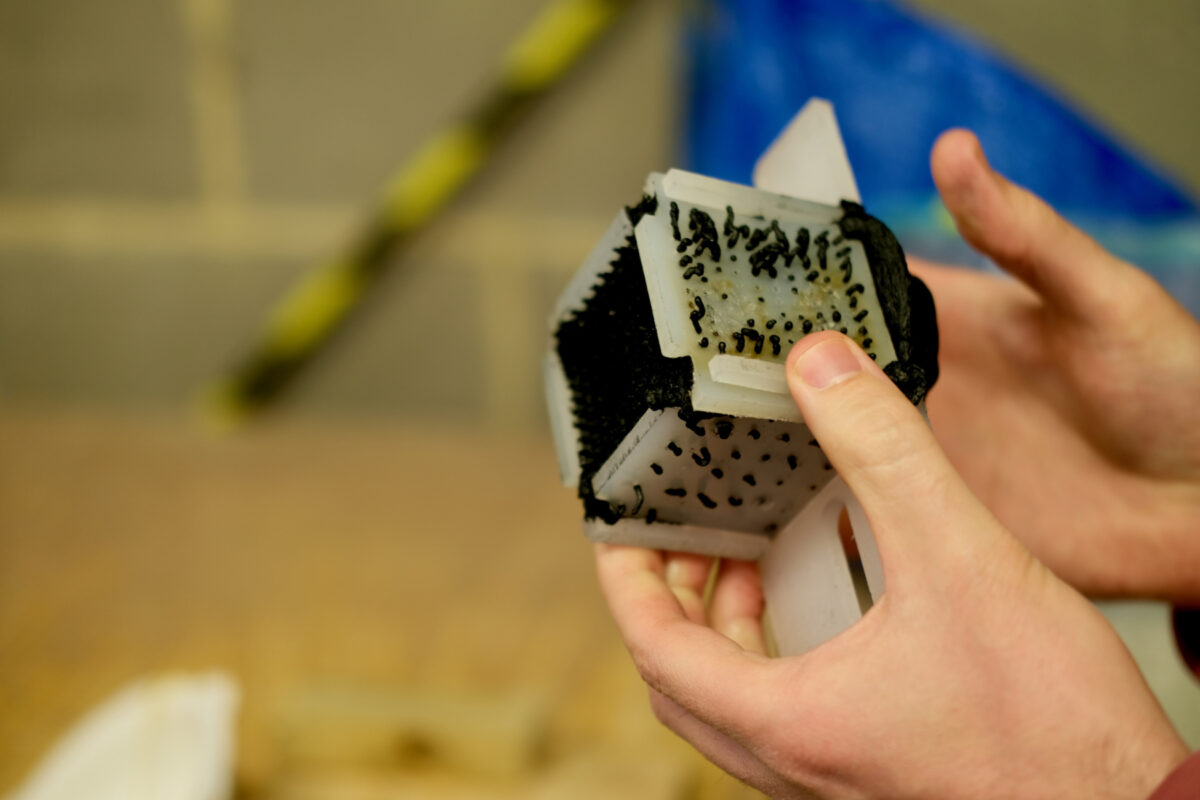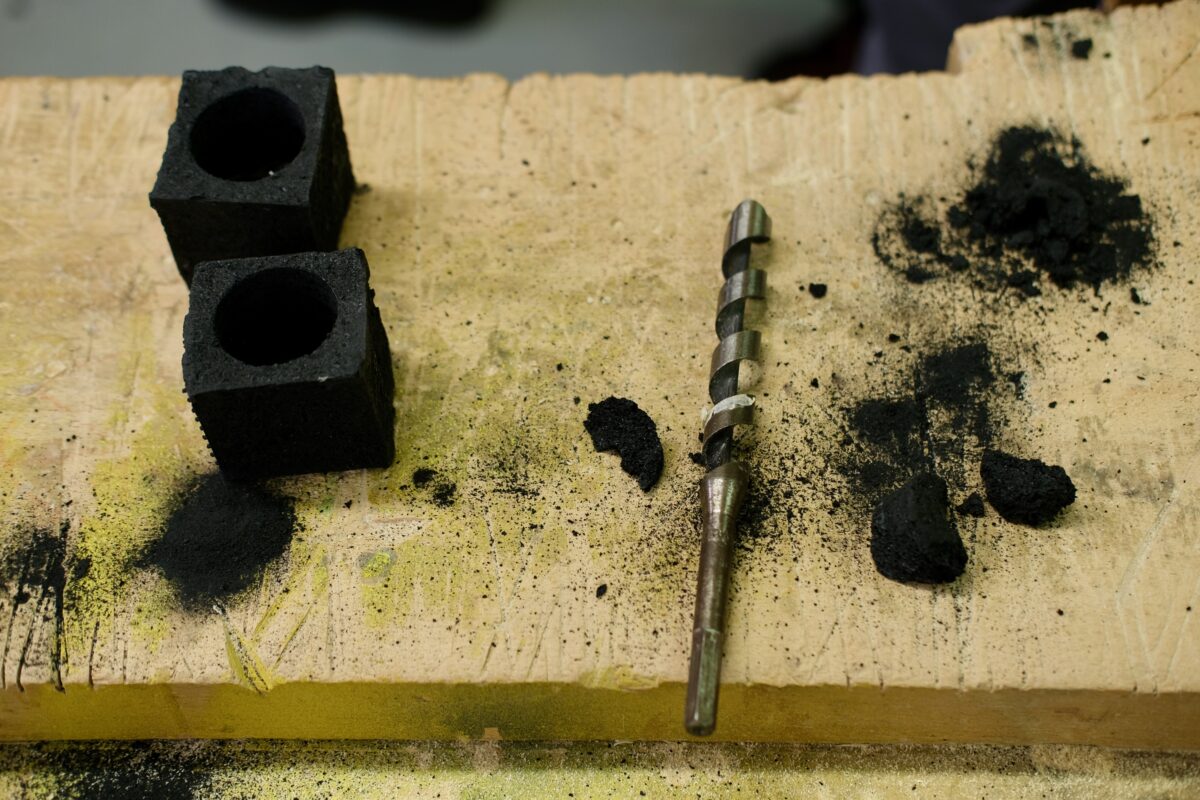In this workshop EKC Sheppey College students will learn how to make seed holders using biochar, a carbon negative material. Carbon Cell will work with students to cook and drill out seed holders for Intertidal Allotment prototypes, to be installed on the shingle beach near Sheerness.
Carbon Cell is dedicated to providing a sustainable alternative to traditional polymer-based foams. The have developed a high-performance expandable foam that is fully compostable and locks in carbon for centuries.
Biochar is the key ingredient that gives Carbon Cell its unique properties. It’s a kind of charcoal made in a process called pyrolysis where organic biomass is transformed at high temperatures in the absence of oxygen. The resultant material is carbon negative – each tonne of biochar can lock in up to 2.1 tonnes of CO2e. It can be made from waste streams like potato peels or even textile waste.
This workshop is part of the wider project Intertidal Allotment. Our 2024-2025 Intertidal Allotment events programme invites people to explore ideas and test out materials for a new community allotment on the north coast of Sheppey – a proposed functional artwork by artist Andrew Merritt, one half of the artist duo Something & Son. As we move into the prototyping phase, we will be offering stimulating conversations on the project’s themes and hands-on activities to test materials and forms for the world’s first coastal allotment.
The project is kindly supported using public funding by the National Lottery through Arts Council England and The National Lottery Community Fund. With additional support from Ideas Test, Swale Borough Council, and Kent County Council.
Find out more here.



